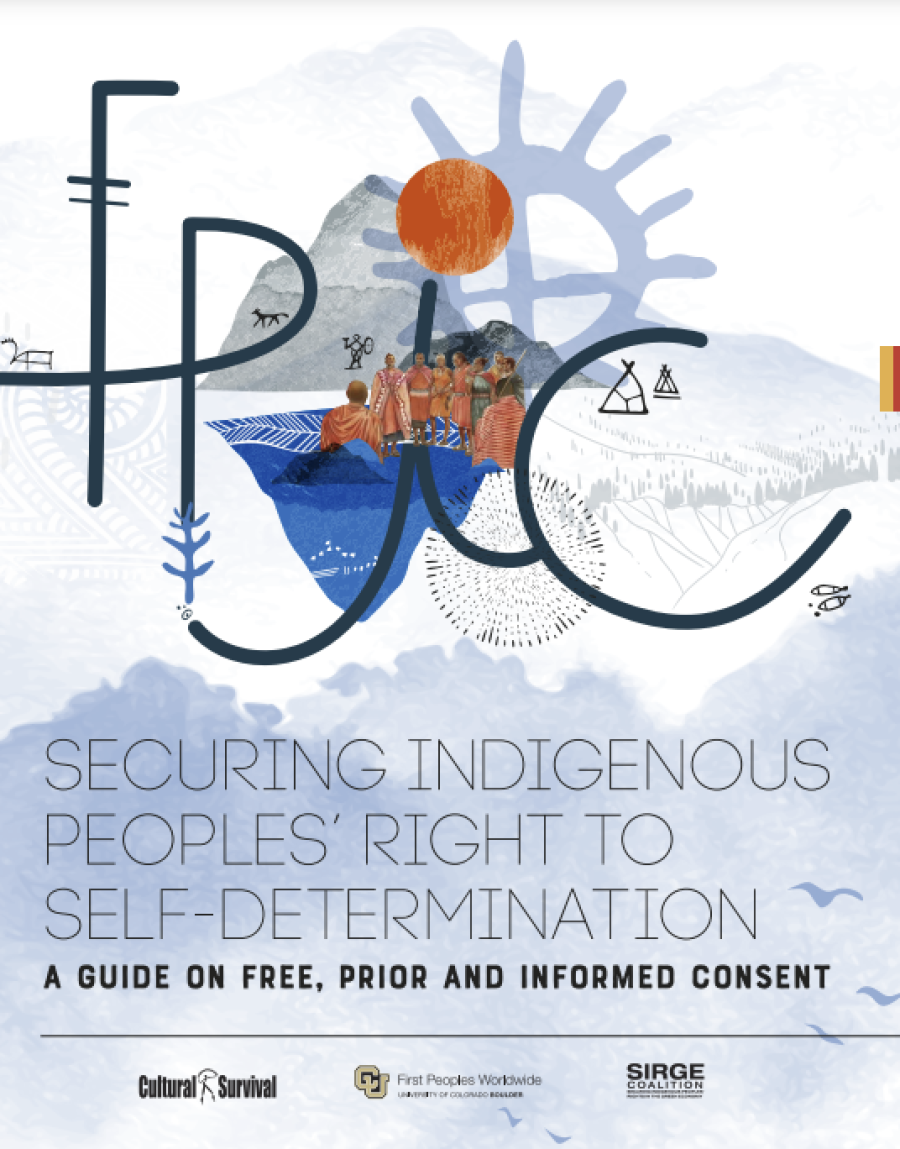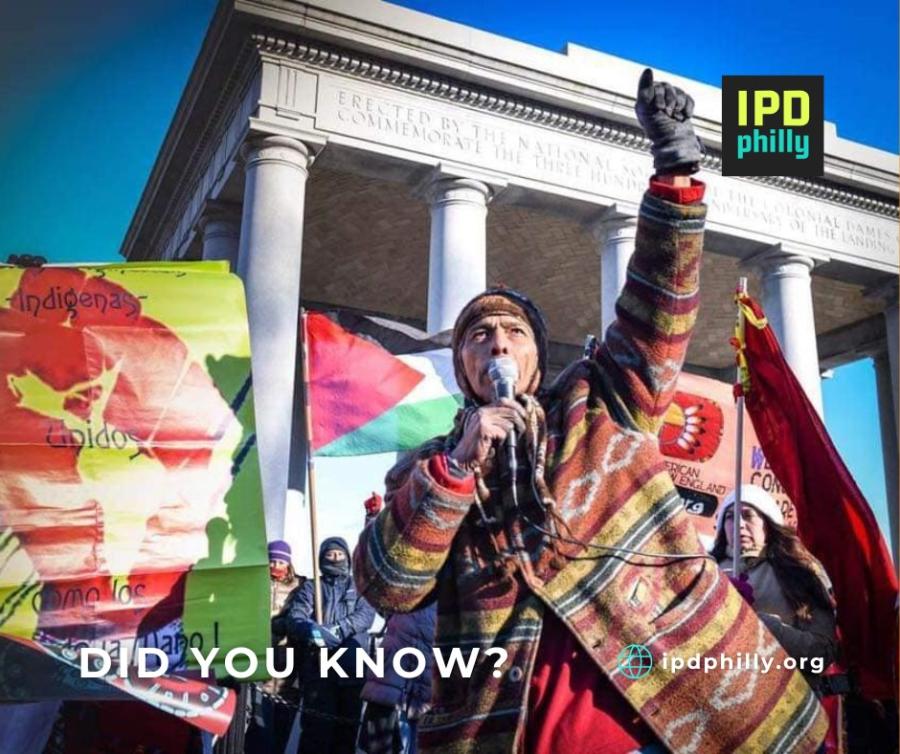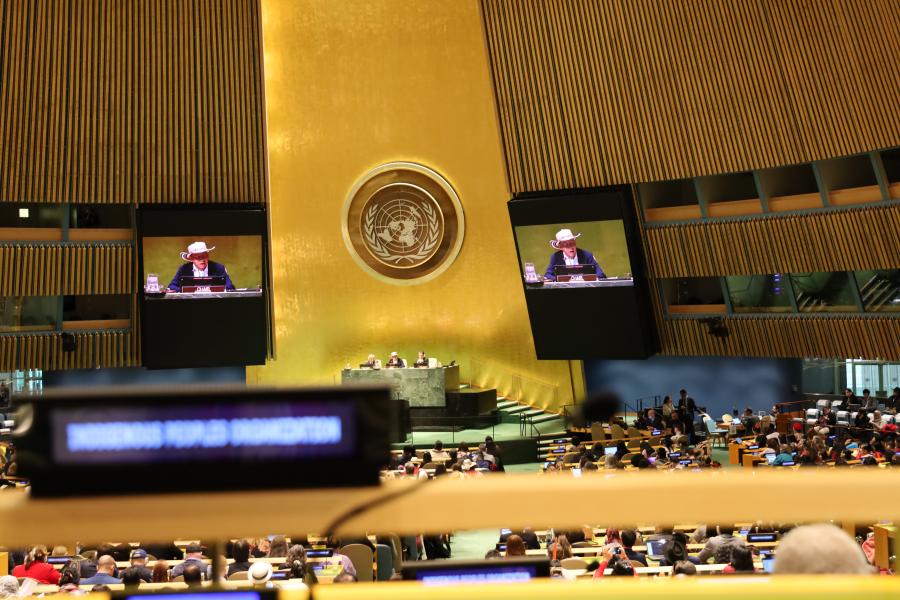
Photo: Comunidad Sinangoe - A’I Cofán (Ecuador)
Cultural Survival is responding to the needs of Indigenous Peoples in the context of the COVID-19 pandemic. Through the Keepers of the Earth Fund, we are supporting projects developed by Indigenous communities in response to the emergency. Keepers of the Earth Fund is a small grants fund designed to support Indigenous Peoples’ community advocacy and development projects. Since March 2020, we have funded 30 requests in 16 countries, totaling $81,221 dollars, yet the need is so much greater. Everyday we receive requests for funds for Indigenous-led responses. The following are grassroots organizations supported by the Fund:
Tosepan Pajti - Nahua (Mexico)
Tosepan Pajti is an organization dedicated to the individual, the family, the community, and the environment. With this funding Tosepan Pajti is strengthening their community health system for Nahua families in the northeast mountain range of Puebla though a comprehensive emergency project. The project takes into account food sovereignty, community health, and communication as the main dimensions. They are exchanging seeds, food, and medicinal plants produced on their farms; organizing a communication campaign through their Indigenous community radio station, Radio Tosepan Limakxtum; and strengthening community health houses.
Indigenous Campesino Association Ch'orti 'Nuevo Día - Ch'orti' (Guatemala)
Through their project entitled "Urgent Actions to Contain the Consequences of the Food Crisis Generated by the Coronavirus Pandemic in the Ch'orti 'Territory", the association is working in six communities undertaking four main actions: supplying food collection centers that are administered and distributed by the local authorities; supplying families with corn and vegetable seeds to prepare for planting crops; developing a communication campaign on prevention and eradication of COVID-19 in the Ch'orti' language; and coordinating a COVID-19 community monitoring system.
Union of Organizations of the Sierra Juarez in Oaxaca (in Spanish UNOSJO) - Xidza (Mexico)
The communities of the Sierra Juárez de Oaxaca have taken actions to control COVID-19, such as closing entrances and roads and establishing sanitary filters, which has also impacted their access to food. In addition to the poor corn harvest, several communities are left without basic seeds. Through the project “Supporting Zidotec communities Xidza in the face of the COVID-19 health emergency,” the UNOSJO organization is distributing basic grains from its seed bank to the communities, strengthening community sanitary filters with health material, and carrying out a communication campaign on COVID-19.
Ka Kuxtal Much Meyaj - Maya (Mexico)
Since the first days of the COVID-19 pandemic in Mexico, the Chenes communities on the Mayan peninsula in the southeast of the country have been preparing to face the pandemic. With the funding received, the Mayan organization is working to elaborate community protocols for COVID-19 contingencies. They have established a communication network in the region through delegates who inform the communities on the general situation of the pandemic. In addition, they are writing a manual on medicinal plants and making masks for the protection of people in their communities.
Council of Elders Iriria Bribri Sá Ká (Cabagra) - Bribri (Costa Rica)
“Improving the health and food conditions of the members of the Council of Elderly Iriria Jetechö Wakpa in the face of COVID-19” is the title of the project that the Bribri community developed. They are buying and distributing health materials; organizing a local community food system, buying and sowing seeds for food production; installing a water system for the community to ensure constant hand wash is available to prevent the spread of the virus. Given the importance of disseminating information throughout the community, they also developed a loud speaker outreach campaign in the Bribri language, since they do not have access to internet, telephone, or radio.
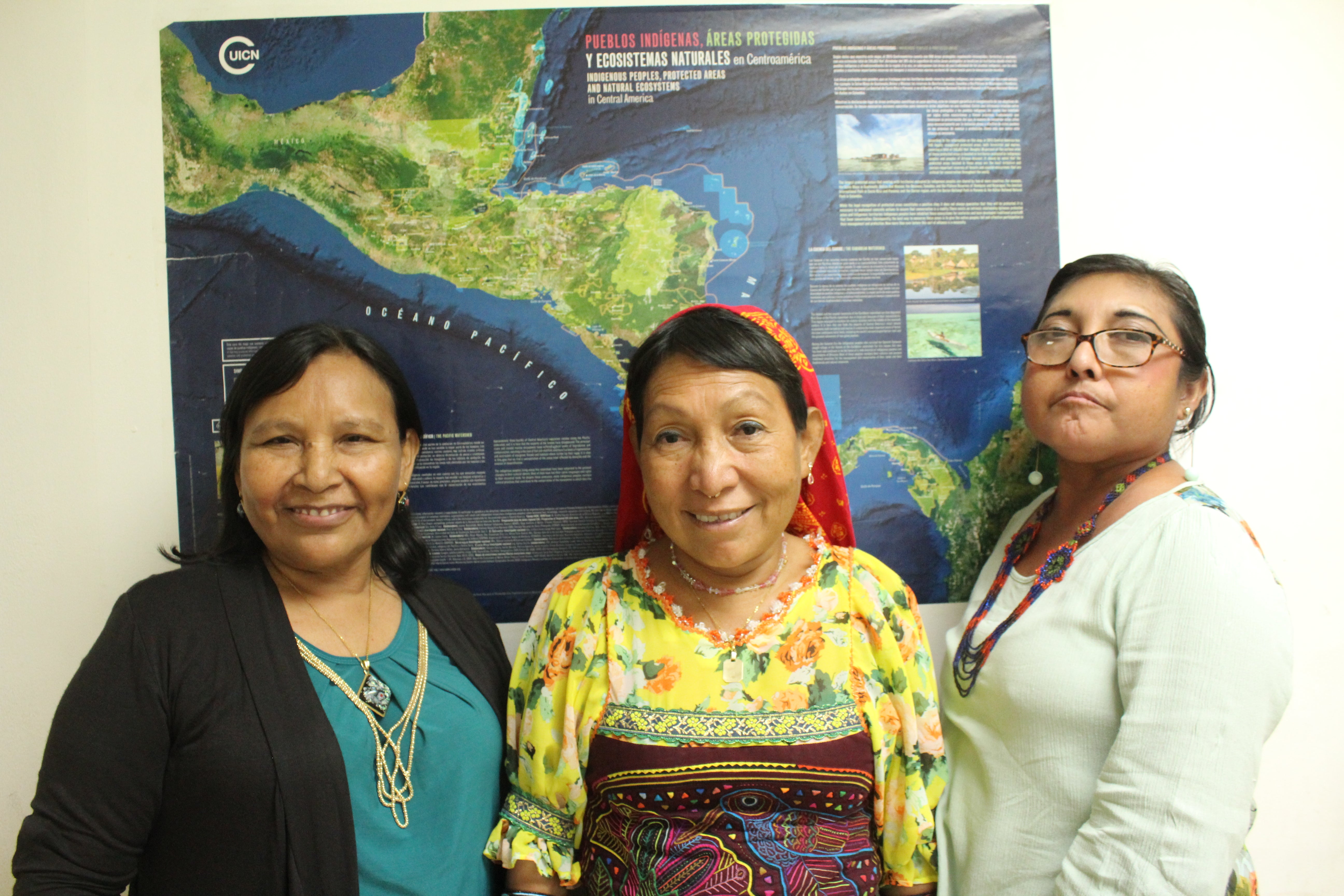
Organization of Indigenous Women United for the Biodiversity of Panama (in Spanish OMIUBP) - Guna, Embera (Panama)
The OMIUBP women's organization is working in Panama to strengthen, develop and recover Indigenous knowledge and biodiversity. Currently they are carrying out a project called "Supporting Indigenous Peoples to face COVID-19 through culturally relevant information and communication in Panama," in which they are organizing a print, radio, and television communications campaign in Guna, Embera, and Spanish, with basic and important information about COVID-19 for communities facing the pandemic.
Julian Cho Society - Maya Qʼeqchiʼ and Mopan (Belize)
Julian Cho Society, in conjunction with the Mayan Leaders Alliance and the Toledo Mayors Association in southern Belize, are carrying out multiple strategies to benefit their communities during the pandemic, entitled "Protecting our community, territory and relationships." Funds are helping to buy basic grains directly from producers who have not been able to sell their products to Guatemala due to closed borders because of the pandemic. The purchased seeds are being distributed to the elderly and at those at risk during quarantine.
Aldeia Vanuire - Krenak (Brazil)
The COVID-19 pandemic has mainly affected Aldeia Vanuire's economy, since many people in the community are employed in nearby cities and have had to stop their work and have no access to income. The Krenak community has taken sanitary measures and organized to prevent food shortages. The authorities and community representatives are providing packages of basic food, medicines, cleaning supplements to prevent the spread of the coronavirus, and are purchasing raw materials for the production of masks that will be distributed to 50 families.
Aldeia Indígena Lagoa dos Tapeba - Tapeba (Brazil)
Tapeba Peoples live near the metropolitan area of Fortaleza, one of the areas most affected by the COVID-19 pandemic. The Tapeba community is vulnerable economically, socially and territorially. The lack of demarcation of their lands adds to the food and health insecurity that this town faces. The Lagoa dos Tapeba Indigenous village is implementing a project to ensure the health and food security of the population. They are disseminating educational material on the importance of preventing and combating the coronavirus, acquiring basic food and personal hygiene supplies, and buying cloth to make masks, which will be distributed to vulnerable families in the community by their leaders.
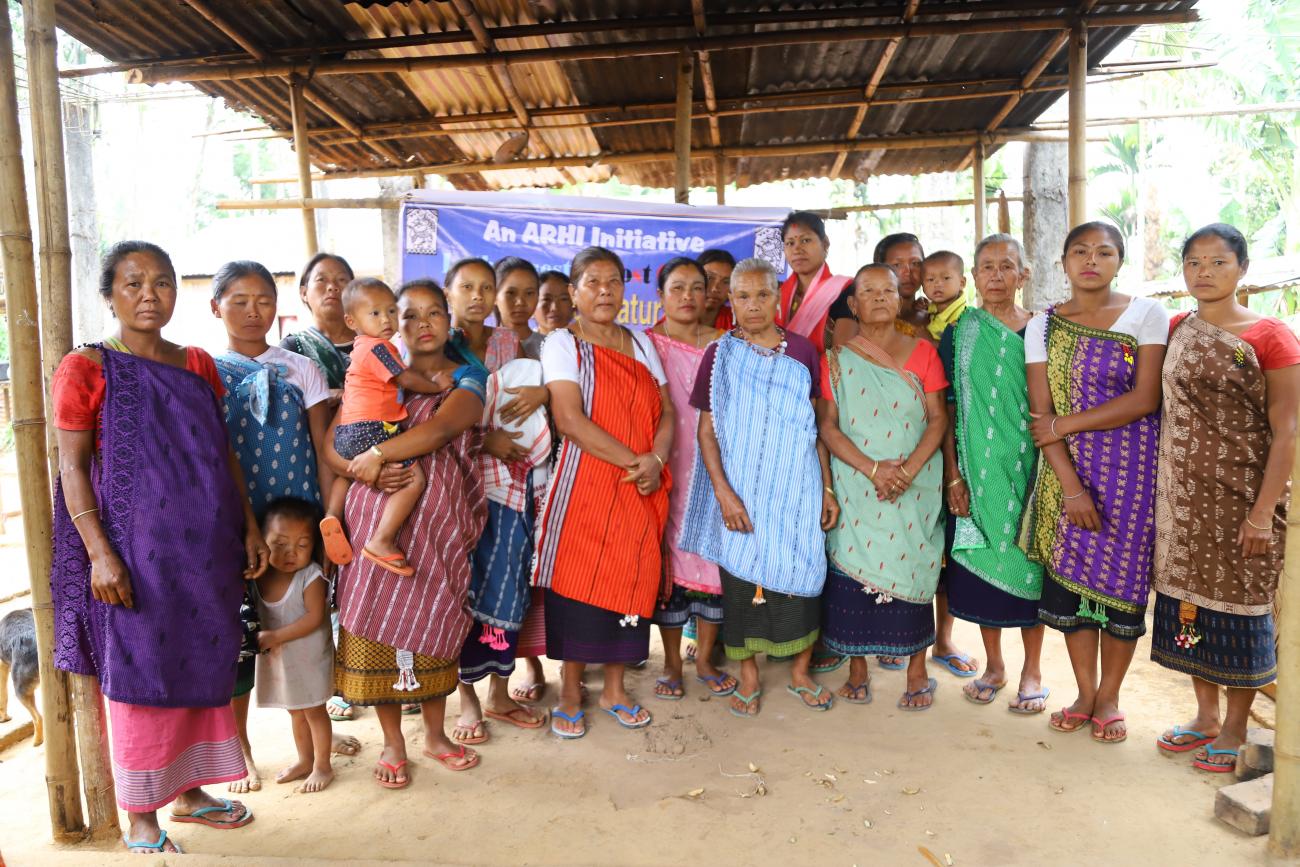
ARHI Social & Educational Institution - Karbi (India)
Northern India is home to multiple Indigenous communities that have been affected by the pandemic, both through actual cases of COVID-19 and through economic hardships. The community has already seen a large migration of people moving from the cities towards the rural areas. ARHI is implementing a project that includes making face masks to prevent the spread of the virus, creating audio material production and public service announcements in Indigenous languages, purchasing and distributing sanitizing products, and publishing pamphlets with information on traditional ancestral medicine.
Centro de Derechos Indígenas (CEDIAC) - Tseltal, Tsotsil, Ch’ol (Mexico).
CEDIAC, in conjunction with the Chilón and Sitalá community governments are taking three main actions. The first is to promote community participation and decision-making for collective action against COVID-19. They plan to strengthen the positions of the jPoxtaywanej (Health Promoters) in order to implement work agendas in the community government centers to encourage timely preventative care through traditional medicine. The group is working to disseminate current, accurate information about COVID-19 through various media (social networks, websites, and community radio) in Tseltal and Spanish based on research conducted by a team of youth from the communities.
Comunidad Indígena Tawahka - Tawahka (Honduras).
Due to the remote location of the Tawahka Peoples and the poor health service available, their communities have developed the project "Emergency Project before the COVID-19 of the Tawahka People," to care for their population through two main activities: the construction and operation of a House-Hostel to isolate and protect the elderly people of Tawahka; and to relocate 51 people (the elderly, women, and 17 children) to their home communities from Tegucigalpa, where they are found due to various illnesses and situations, which implies the travel by river. Those at risk will provided food and medicine in isolation.
Comunidad Indígena Ziora Amena - Muruy (Colombia).
The Ziora Amena multiethnic Indigenous community is located in the Amazon on the border between Peru and Brazil, a region with a large number of COVID-19 cases and poor access to health services. The community is supporting the work of the Indigenous Guard, which is protecting the area, regulating the flow of people, conducting sanitizing in the community, and monitoring the entry and exit of people. The Indigenous Guard is acquiring basic equipment for their personal protection such as face masks, as well as supplies such as lights, boots, batteries, etc. for their work.
Asociación de Desarrollo Juvenil del Municipio de Tacuba (ADEJUMUT) - Nahua Pipit (El Salvador).
The Nahuat Pipil communities on the border between El Salvador and Guatemala have been fighting for nearly 12 years to regain access to safe drinking water. They are supplying water to seven communities through pipes, organizing sanitation days, delivering basic food packages, and holding an education day to prevent the spread of COVID-19.
Centro de Desarrollo Ambiental y Humano (CENDAH) - Guna (Panamá).
The Guna people have already been affected with confirmed COVID-19 cases and deaths. Facing the pandemic, they have taken several actions to protect their population, such as closing their territories, suspending tourism, and using traditional medicine. In order to look to the future and contribute to food sovereignty in the community, the Guna people are increasing the agroforestry production of nainu; growing plantains/bananas, yuca and maize along with medicinal plants; holding training workshops related to cultivating crops; planning to distribute harvested foods among the communities; and receiving training on COVID-19 prevention and care.
Radio Yandê - Mura, Tukano, Tupinamba, Terena, Kambeba, Krenak, Guarani, Munduruku, Pankararu, Pataxó Hã-hã-hãe, Krikati (Brazil)
Radio Yandê is an Indigenous radio station in Rio de Janeiro that broadcasts to a large and diverse Indigenous population. Since the start of the pandemic, they have focused their work on the dissemination of information related to COVID-19. They are strengthening their transmission on COVID-19 and producing programs on topics of interest to Indigenous Peoples such as the demarcation of Indigenous territories; Indigenous women; Indigenous rights, etc. Radio Yandê is coordinating relief for the Mura Sampaio Indigenous community in the Josefa region on the lower Río Madeira, by purchasing of health supplies for the prevention of COVID-19 and food for the families, as 80% of the 200 people in the community have symptoms of COVID-19.
Eastern Woodlands Rematriation - Maliseet, Mi'kmaq, Passamaquoddy, Penobscot, Nipmuc, Wampanoag, Narragansett (USA)
Eastern Woodlands Rematriation is a network of Native American women working to restore the spiritual foundation of their livelihoods through sustainable food and economic systems. They will continue their work to ensure food and traditional medicine in these times of crisis due to COVID-19. More than 25 families in different parts of New England (Maine, Massachusetts and Rhode Island) will receive materials to plant crops and will be supplied with food and medicine. Part of the food produced will be preserved and packaged for delivery to families to supplement their food reserves for the year.
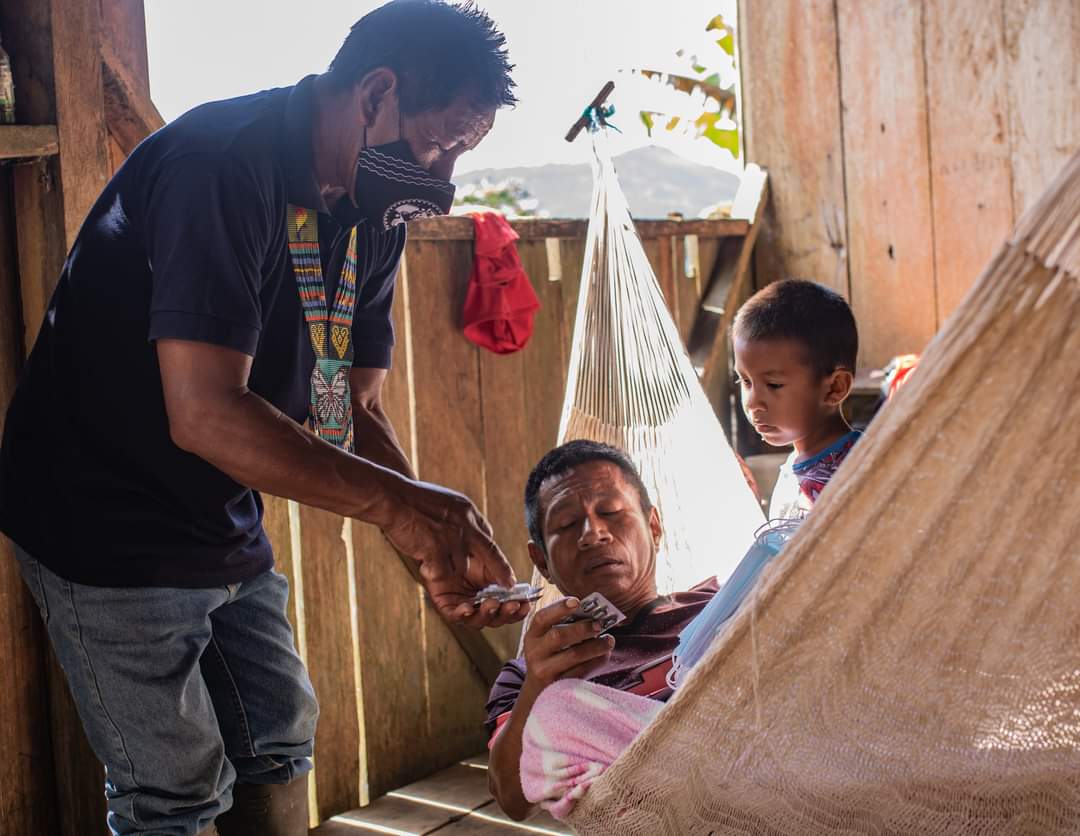
Comunidad Sinangoe - A’I Cofán (Ecuador)
Sinangoe is a small community of about 200 A’l Cofan people who live in the north of the Ecuadorian Amazon. In the Spring of 2020, Ecuador was hit with the COVID-19 pandemic. While the virus was spreading through the country, the rainy season caused the suspension bridge that connected the community to the cities to collapse, and their canoe, the main way of land monitoring, was carried away by the river. A Keepers of the Earth Fund COVID-19 emergency response grant is helping the Sinangoe community to get food and basic medicine to keep families isolated, as well as providing fuel for their newly carved canoe to transport their goods.
Il'laramatak Community Concerns (ICC) - Maasai (Kenya)
The COVID-19 pandemic has brought an economic crisis and is rapidly exacerbating an on-going food insecurity and nutrition crisis in pastoral areas of Kenya. Pastoralists rely on their local livestock and markets for subsistence and sustenance. This has been hit hard upon prevailing closure of markets and supplies to the local shops have dwindled with the restriction of movement. ICC is providing food packages to elderly women and children. They are providing soap for people to be able to keep sanitation measures. As a complementary strategy, they are conducting radio talk shows to disseminate timely and accurate information on COVID-19 in Maa through local radio stations. Up to 600 Maasai people will benefit from this project.
Lokiaka Center - Ogoni (Nigeria)
The Ogoni people are farmers and traders. The decision of the Nigerian government to close the main markets and borders has affected the lives of many people who were going to buy agricultural seeds to plant but could not access them. There is a fear that there will be an increase in hunger in the country. Most of the ethnic nationalities that depend on the agricultural products of the Ogoni will suffer as well. The Lokiaka Center developed in response to COVID-19 to produce and distribute reusable face masks and buy and distribute basic food for households. In addition, a communication campaign is being carried out to prevent the spread of the virus through the exchange of appropriate information about COVID-19 on two local radio stations and through a town crier in the Ogoni language.
Indigenous Peoples News - (Bangladesh)
Indigenous Peoples News (IPs News) is a platform that has been built in an aim to address Indigenous Peoples' human rights situation in Bangladesh. Given the nature of the State's oppressive policies towards Indigenous Peoples, very often the national news including electronic and print media are reluctant to publish news or information related to Indigenous Peoples. IPs News Bangladesh was created by volunteers and activists to share information online about Indigenous Peoples' realities. In the face of COVID-19, communication is an essential way to raise awareness and a means for individuals and communities to stay connected even while physically separated. IPs News is conducting media advocacy campaigns and social mobilization on the COVID-19 crisis and other rights issues of Indigenous Peoples in Bangladesh. It aims to raise awareness of Indigenous communities about COVID-19 through culturally and linguistically sensitive content.
Ceará Association FEPOINCE - Tremembé, Suruí (Brazil)
The Indigenous Peoples of Ceará in the northeast region of Brazil are one of the communities most affected by the pandemic. Ceará has 15 Indigenous Peoples distributed in 19 municipalities with a population of approximately 35,000. Out of the 26 demands in the land demarcation system of the National Indian Foundation (FUNAI), only one Indigenous Territory is homologated in Ceará, generating a situation of insecurity and social vulnerability of the people. It is also one of the poorest states of the country. FEPOINCE are serving the Tremembé people of Itarema to ensure that they can survive with dignity during this period of the pandemic, distributing baskets of basic supplies and food to families in need.
San Miguel de la Castellana - Inga (Colombia)
San Miguel de la Castellana is a small Inga community in Putumayo, southern Colombia. Since the beginning of the pandemic, the community has taken health and spiritual actions to prevent the spread of COVID-19. The community is ensuring their food sovereignty at a time when the community chagra (farmland) has provided food for local families. They will collectively plant basic products such as cassava, plantain, corn, yota, chili, yam, papaya, pineapple, sugarcane and banana; they will also buy and raise four species of fish in ponds.
Coletivo Mura - Mura (Brazil)
The Mura Itaparanã Indigenous territory is named after the river that crosses its territory, which means ita = stone and paranã = river. The Mura people have suffered constant attacks, and recently a new invasion of their territory resulted in the demolition of their fences and the houses of some twenty families. The Mura Collective are building four houses with collective work, local materials, and electrical installation, to ensure the basic protection of a safe home for the people of the community during the pandemic.
Resguardo Zenú de Tuchin Córdoba - Zenú (Colombia)
The Zenú de Tuchin Córdoba Reservation is a community in the north of Colombia that is dedicated to the production of art with caña flecha (a type of grass). Asociación del Sombrero Vueltiao in collaboration with Finatur / Sanarte and the community are implementing a sustainable development project in response to COVID-19. They are learning about and and establishing a strict biosafety protocol, producing reusable masks, which will serve as a product to maintain their income. A part of the production will be donated to the community as a measure to prevent the spread of COVID-19.
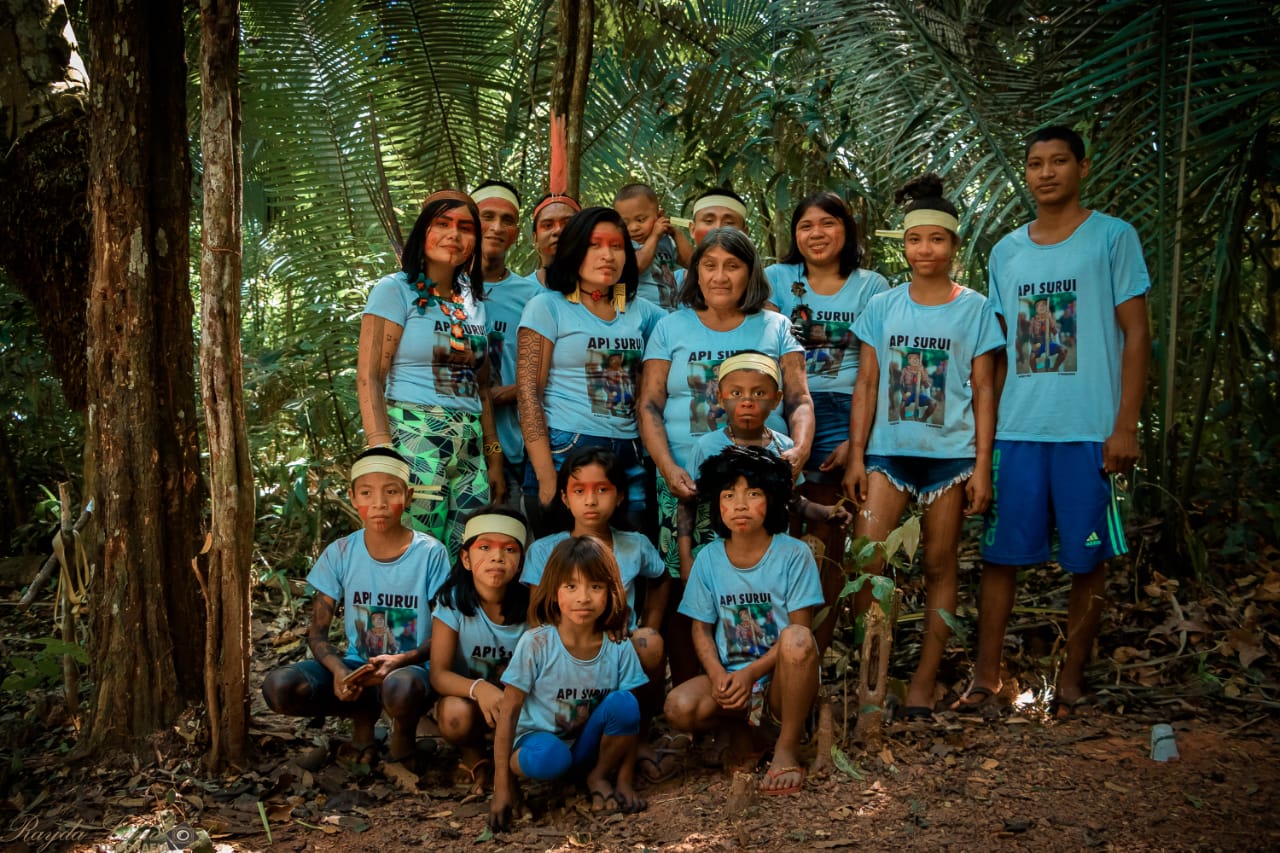
Povo Surui Aikewara de Sororó community - Surui, Aikewara (Brazil)
Sororó community is located in the municipality of São Geraldo do Araguaia directly affected by COVID-19 with 3 elders deaths, 124 positive cases, and a prevalence of 59% in the population, in addition to at least 35 other people with symptoms and no access to testing. Food insecurity is a consequence of the pandemic and the community is buying supplies to feed the elderly and sick. This project is a complement to their current project, "hospital kitchen," an initiative set up to prepare special meals for those at risk.
Asociación Mushuk Yuyay - Kichwa Cañari (Ecuador)
The Mushuk Yuyay association is an organization dedicated to the cultivation of grains of high nutritional and medicinal value in the southern region of Ecuador. Mushuk Yuyay has been promoting the associative production of Andean grains such as: quinoa, barley, broad bean, pea, amaranth and wheat. In response to the COVID-19 emergency, the organization is working with 11 communities in the field of economic and food sovereignty. They will seek to maintain the fair price for the grains produced by the families. Through small workshops, an analysis will be made of feeding and planting during the pandemic and they will raise awareness about the consumption of nutritious and medicinal foods. The organization's grain storage and transformation center will be strengthened, because at this time the demand for grain varieties is increasing.
Red de Comunicación Wayuu “Putchimajana” - Wayuu (Colombia)
The Wayuu live in the extreme north of Colombia and northwestern Venezuela. Due to the climatic conditions of their region, they have limited access to water sources and drinking water does not reach their communities. The Alakat community uses a submersible pump to supply the entire population and other neighboring communities, but the pumping system has not been working properly, so the community has had to buy water tanks or walk kilometers to get water. Red de Comunicación Wayuu, in addition to communication, is engaging the community to ensure they are following COVID-19 prevention measures. In their information campaign on social media and radio, they will produce programs and preventive information and promote traditional medicine.
Hogares Caldono CEFIC - Nasa (Colombia)
Hogares Caldono CEFIC is an educational center in the San Lorenzo Caldono community which is accessed by young people from the neighboring six Indigenous villages. CEFIC planned an educational project that had to be completely restructured due to school closing as a government action against the COVID-19 pandemic. As an emergency response project Hogares Caldono is facilitating a learning process that includes food sovereignty and spiritual activities. The school will provide students with 30 types of local seeds and vermicompost to cultivate in their backyards as well as chickens to raise, this way the students will learn and families will have food resources. Teachers, students, and families will carry out ceremonies to confront the pandemic spiritually.
Sain Tus Center NGO - Kazakh, Altai Uriankhai, Chantuu, Zakhchin, Torghut and Durvud (Mongolia)
Mongolia has been under quarantine since January 2020 and borders were also closed. Many people are losing their income and jobs because of COVID-19. Poverty and the unemployment rate has been increasing rapidly in the last 6 months. Mongolian society was already affected by high rates of unemployment, poverty, and hunger before the virus. Sain Tus Center NGO is implementing a project to improve knowledge of COVID-19 prevention, face mask usage, and improve the food security of 100 of the most impoverished Indigenous families, some of them with children with disabilities, in Jargalant Sum, Khovd Province of Mongolia.
